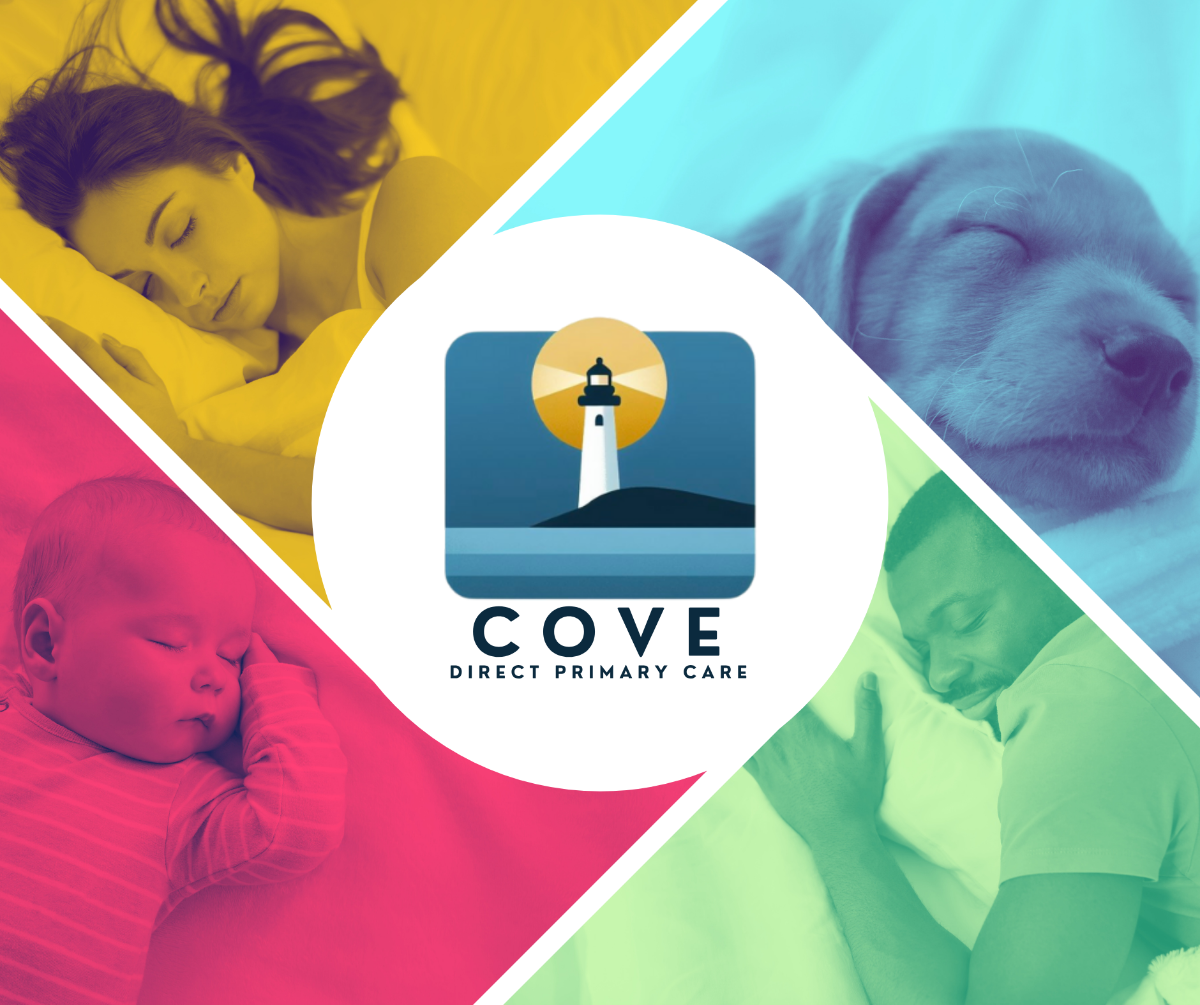














Sleep Science: Optimizing Rest for Better Health and Productivity
As the school year ramps up in Columbus, IN, September brings busy schedules and new routines for families. Amid the hustle, sleep often takes a backseat, yet it’s critical for health, focus, and productivity. At Cove Direct Primary Care (DPC), we’re dedicated to empowering our community with evidence-based health knowledge. This guide dives into the science of sleep, offering practical, research-backed strategies to help kids, parents, and seniors optimize rest for a healthier, more productive fall.
The Science of Sleep
Sleep is essential for physical and mental health, supporting everything from immune function to memory consolidation. According to the National Sleep Foundation, adults need 7-9 hours of sleep per night, kids aged 6-13 need 9-11 hours, and seniors need 7-8 hours (Sleep Health, 2020). Poor sleep disrupts hormones like cortisol and melatonin, increasing stress, weakening immunity, and impairing focus, per a 2021 study in Nature Reviews Neuroscience. For kids, inadequate sleep can lead to behavioral issues and lower academic performance, while adults and seniors face higher risks of chronic conditions like diabetes or heart disease.
3 Evidence-Based Insights on Sleep
[1.] Understanding Sleep Cycles
Sleep occurs in 90-minute cycles of light, deep, and REM (rapid eye movement) stages, each vital for health. Deep sleep supports physical repair, while REM sleep aids memory and emotional processing, per a 2019 study in The Journal of Neuroscience. Kids need more deep sleep for growth, while adults benefit from balanced cycles to reduce stress. Disrupting these cycles—through late-night screen time or irregular schedules—reduces sleep quality, impacting daily performance.
[2.] The Impact of Blue Light on Sleep
Blue light from screens (phones, tablets, TVs) suppresses melatonin production, delaying sleep onset. A 2022 study in Sleep Medicine found that 2 hours of evening screen exposure reduces melatonin by up to 22%, making it harder for kids and adults to fall asleep. This effect is particularly pronounced in children, whose developing brains are more sensitive. Limiting screen time before bed is critical for better rest.
[3.] Sleep Hygiene and Health Outcomes
Consistent sleep hygiene—habits like regular bedtimes and a calming pre-sleep routine—improves sleep quality and overall health. A 2023 study in Pediatrics showed that kids with structured sleep routines had better emotional regulation and academic outcomes. For adults, good sleep hygiene reduces risks of obesity and hypertension, per the CDC (2023). Simple changes, like a dark, cool bedroom, can significantly enhance rest for all ages.
Practical Sleep Tips for Families
Rest Well, Thrive Well
Quality sleep powers your family’s health, from sharper focus in school to better energy for daily life. By understanding the science of sleep and applying these evidence-based tips, you can make September a month of restful, productive days in Columbus, IN. Want to explore more ways to support your family’s health? Text (812) 227-6024 or visit www.covedpc.com to schedule a free consultation with Cove DPC and discover personalized care.
References:
Are you ready to become a member? Great! We’re excited to have you on board. Just fill out the form to get the ball rolling and we’ll be in touch.
Still want to learn more about direct primary care or our practice? Check out our FAQ page for answers to many common questions.[
1427 Washington St
Suite B
Columbus, IN 47201